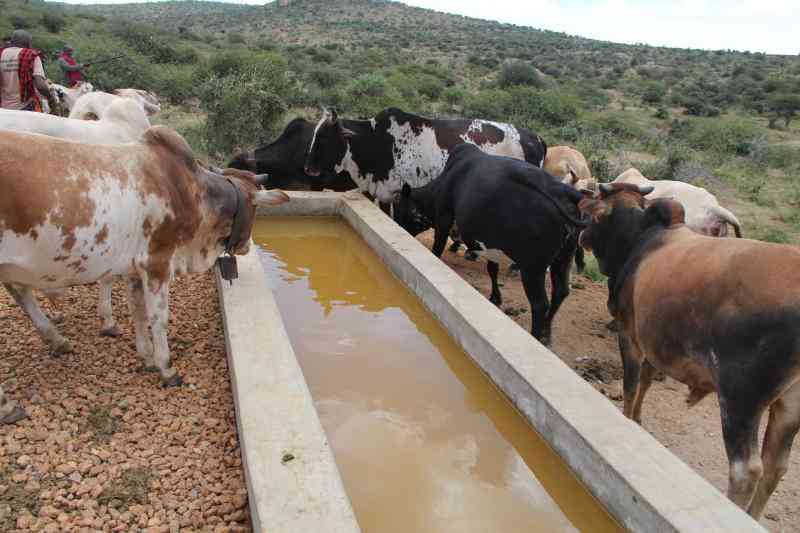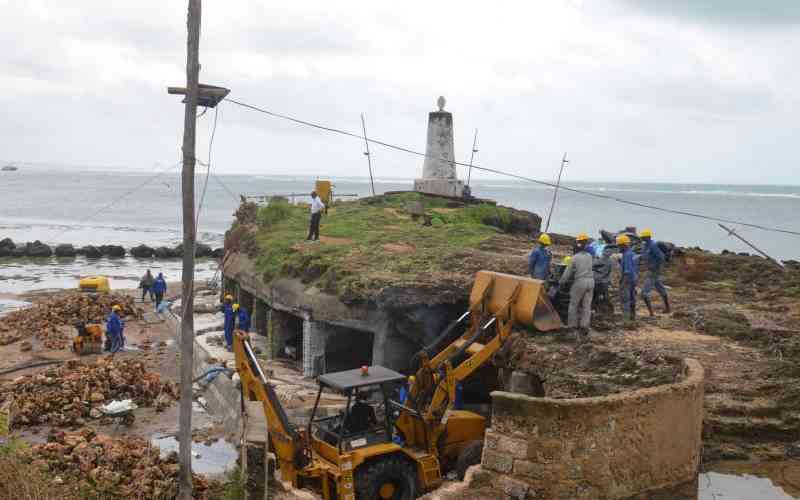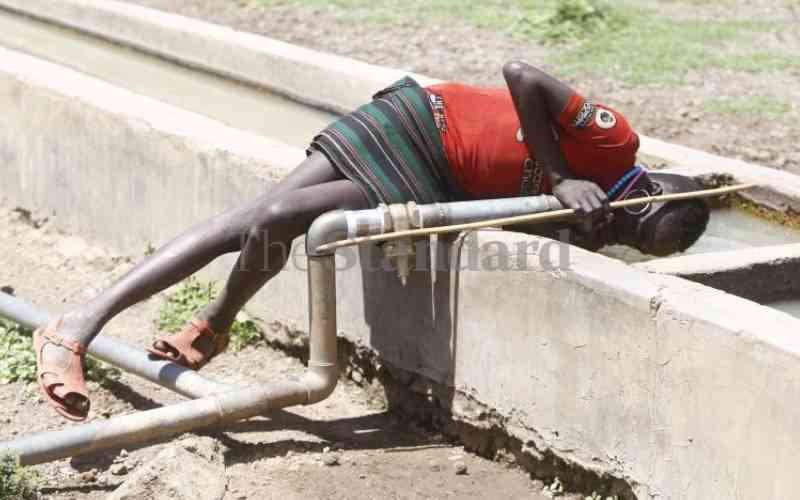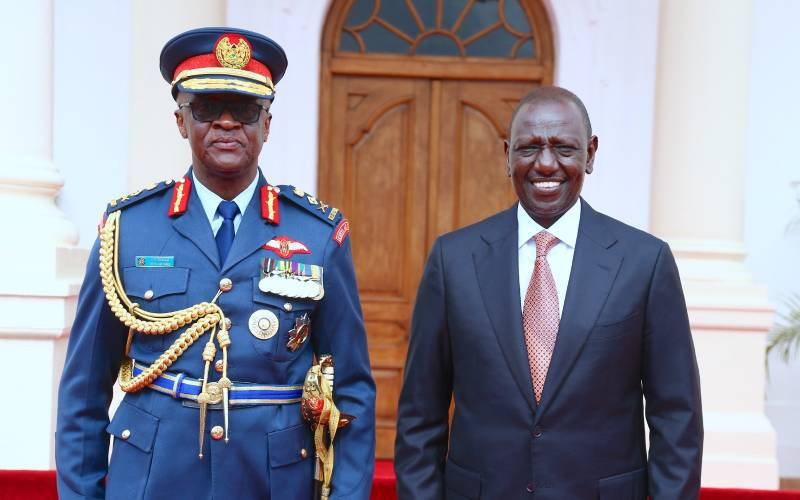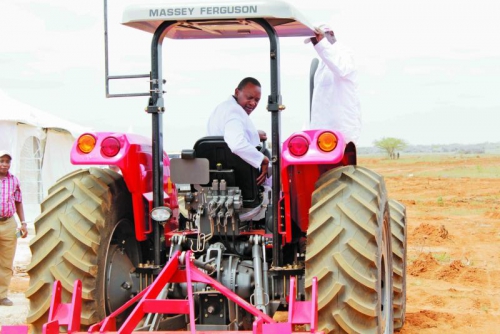
Kenya: There is no water to irrigate the one-million-acre Galana irrigation project in Tana River into which the Government has pumped billions of shillings.
According to Agriculture Cabinet Secretary Felix Koskei, the water supply from River Tana will only be able to sufficiently irrigate a paltry 20,000 acres out of the one million acres envisioned by the Galana/Kulalu irrigation project.
Consequently, the Government says it will now be forced to engage a consultant to undertake a hydrological study to establish the viability of underground water for the project.
Galana/Kulalu irrigation project in Kilifi and Tana River counties is one of the Jubilee administration's flagship projects expected to cut Kenya's reliance on rain-fed agriculture.
"It is true that the river (Tana River) water supply is not enough to irrigate the entire farm and this calls for intervention measures. We are only left with one option of carrying another study to know whether there will be underground water that can support the project," Mr Koskei said on Tuesday.
With billions of shillings already been spent on the project, MPs have not taken it lightly, and have criticised how the money has been spent.
Parliament's Agriculture Committee last year questioned the use of Sh920 million from the initial Sh1.6 billion allocated to the project on consultancy.
In 2014-2015 budget, the Treasury allocated Sh3.5 billion to the project and on Tuesday, Koskei said a total of Sh14.5 billion has been set aside for the 10,000-acre pilot project.
The project has, however, steered off the course since its launch by President Uhuru Kenyatta in 2013, forcing the Government to postpone the planting on the 10,000-acre pilot land.
Piloting was scheduled to start in October, 2014 but it was postponed to January this year, which the CS said has again been pushed to April.
Kilifi County Agriculture Executive Mwalimu Menza on Wednesday said that though it was still early to question the viability of the project, "it was important to keep the timeline because in the eyes of many, it is now being seen as a white elephant".
He said the project was still at its initial stages and the Government's intention of doing feasibility study on the viability of ground water would further delay its implementation.
"We knew water from the river would not be enough and that is why there was the component of the construction of new dams and reviving the existing ones. But we were not aware that we will need underground water," said Mr Menza.
Field designs
Stay informed. Subscribe to our newsletter
Despite Menza's fears, the Government has already engaged a consultant to come up with designs for the establishments of dams in the farm.
Koskei said the report and designs for the proposed dams have been finalised and the ministry engineers are expected to study them before the tendering process starts.
A ministry official told The Standard that the dams would have the capacity to store water to the tune of two billion cubic litres, and will be able to irrigate 400,000 acres.
"We have so far constructed the pipeline that will stretch for 4km and will only serve 1,000 acres, so it is actually a daunting task," said the official who did not want to be named because he is not authorised to speak to the Press.
Other components of the Sh400 billion project that have been financed include the Sh110 million for development of a model farm, Sh490 million for rehabilitation of infrastructure, Sh32 million for a study on soil suitability and Sh50 million on facilitation, including transport and vehicles.
Under the project, 150,000 acres will be dedicated to beef and game animals, 50,000 acres under horticulture, 500,000 acres for maize production, 200,000 acres for sugarcane farming, 50,000 acres to grow fruits and 50,000 acres for dairy farming.
Koskei did not, however, elaborate how much the Government plans to spend in the consultancy to establish the viability of underground water.
An Israel company, Green Arava, is already undertaking the infrastructural development of the first phase, which entails laying of pipeline, water intake and pumping station, establishment of centre pivots among other infrastructure.
During the signing of the agreement with the Israel company in Nairobi last year, Koskei had indicated that Sh2.5 billion will finance the setting up of irrigation systems such as green houses, drip and pivot while Sh3.8 billion will cater for logistics, agriculture machinery, training centres and other components.
The operations and maintenance would cost Sh3.4 billion.
Although the piloting on the farm has been pushed to April, Koskei maintained that the Government intends to plant maize before the end of February and that by end of May, they will have the first harvest.
The 10,000 acres to be put under various various agriculture technology would be used to gauge which technology would be suitable for adoption for the entire one million-acre irrigation project.
He said the Government's plan is to put in place all the necessary infrastructure and later allocate farms to private investors.
The CS revealed that foreign companies from the US, Israel and Italy have shown interest in the project and made applications.
Currently at least 40 million bags of maize are produced in the country annually and the Galana project would double up the maize production to over 80 million bags.
He said the Galana project is meant to boost the country's food basket and further lower food prices, and increase the country's food exports.
 The Standard Group Plc is a
multi-media organization with investments in media platforms spanning newspaper
print operations, television, radio broadcasting, digital and online services. The
Standard Group is recognized as a leading multi-media house in Kenya with a key
influence in matters of national and international interest.
The Standard Group Plc is a
multi-media organization with investments in media platforms spanning newspaper
print operations, television, radio broadcasting, digital and online services. The
Standard Group is recognized as a leading multi-media house in Kenya with a key
influence in matters of national and international interest.
 The Standard Group Plc is a
multi-media organization with investments in media platforms spanning newspaper
print operations, television, radio broadcasting, digital and online services. The
Standard Group is recognized as a leading multi-media house in Kenya with a key
influence in matters of national and international interest.
The Standard Group Plc is a
multi-media organization with investments in media platforms spanning newspaper
print operations, television, radio broadcasting, digital and online services. The
Standard Group is recognized as a leading multi-media house in Kenya with a key
influence in matters of national and international interest.


